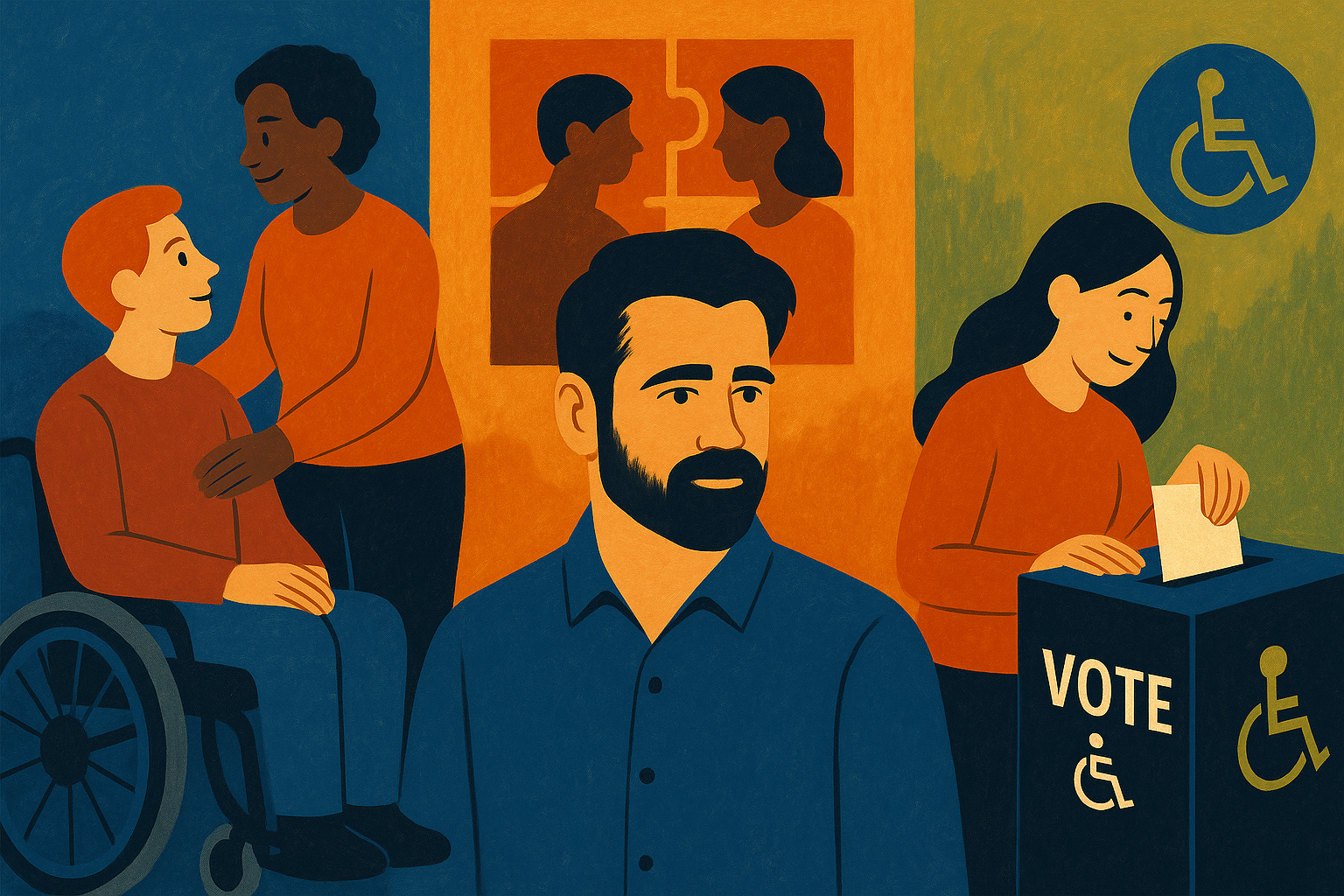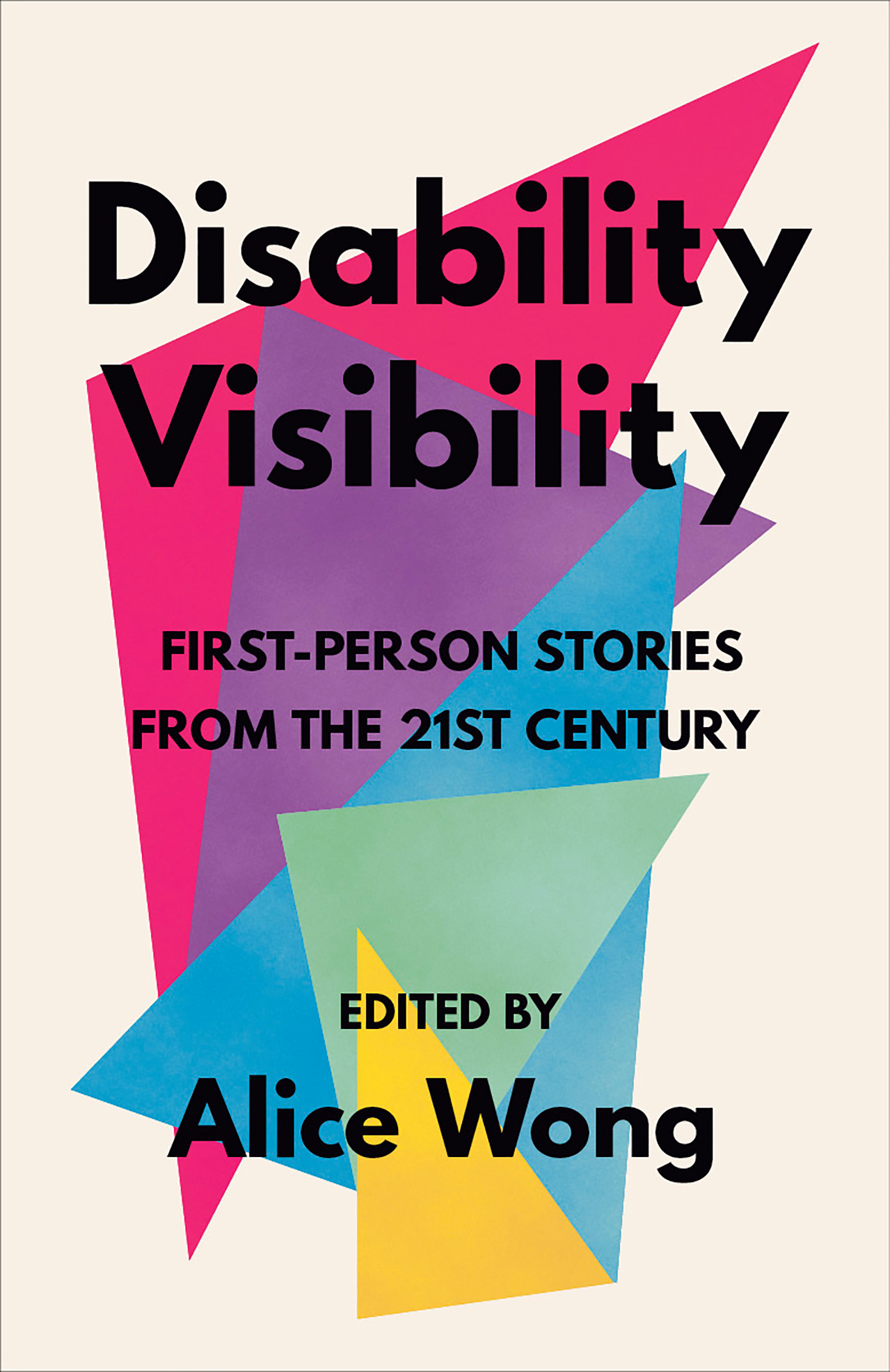In Good Co. — Issue 002: Autism, Adulthood & Access at the Ballot

Welcome to In Good Co., your weekly dispatch on neurodiversity and causes worth caring about.
🟣 Stimmates® Spotlight
The Rocky Road to Adulthood: What Happens After High School Ends?
The transition from structured education to adulthood is more like a cliff than a bridge for autistic teens and their families. Services that were once mandated through IEPs or EHCPs practically vanish overnight.
This isn’t just hard on families; it’s a systemic failure.
What we need:
- Supported Employment: Programs that provide job coaching, skill-building, and ongoing support.
- Mentorship: Opportunities for neurodivergent youth to connect with mentors who can help them navigate the professional world.
- Inclusive Education: Higher education institutions and trade schools with dedicated support services.
“It feels like we’re tossed off a cliff and told to land on our feet.”
- For Educators: Work with local businesses and colleges to create clear pathways for neurodivergent students. Facilitate mentorship programs, job shadowing, and opportunities that help build skills and confidence.
- For Employers: Create an internship or mentorship program for neurodivergent youth. You’ll not only tap into an innovative talent pool, but you’ll demonstrate a clear commitment to inclusivity that builds consumer trust.
Until we bridge this gap, we’ll keep isolating neurodivergent teens. Let’s work together so neurodivergent young adults have the support and opportunities they need to thrive.
Learn more at Stimmates®, a welcoming, safe space for neurodivergent people and their families to connect and thrive. Explore resources, share authentic experiences, and find support designed to make life a little less isolating.
🟠 Communitees™ Corner
Hollywood Meets Humanity: The Colin Farrell Foundation
Colin Farrell may be best known for his acting, but off-screen, he’s a father to a son with Angelman Syndrome and a powerful advocate for neurodivergent families.
The Colin Farrell Foundation has spent years funding programs that fill the void left behind after disabled teens become adults. This is a cause that desperately needs more celebrities and champions in its corner, so the support doesn’t stop when the cameras stop rolling.
“The struggles of a child with special needs can be so brutal that they tear at the very fabric of your heart.”
Support your local grassroots orgs. Seek out groups that are doing the hard work on the ground. These are the orgs building those essential bridges, brick by brick. Here are a few in the US and UK to get you started:
- Autistic Self Advocacy Network (ASAN): A US-based organization run by and for autistic people, advocating for policy change and providing resources like their fantastic "Roadmap to Transition" handbook.
- National Autistic Society (NAS): The UK's leading charity for autistic people and their families, offering a wide range of services, advice, and advocacy.
- The Arc: A large US-based organization that provides a wide range of services and advocacy for people with intellectual and developmental disabilities.
- Mencap: A UK charity that works with people with learning disabilities and their families to promote inclusion and independence.
- Disability Belongs: A US-based nonprofit that works to advance the rights and opportunities of people with disabilities, with a focus on employment, education, and political engagement.
- Disability Rights UK: A UK-based charity run by and for disabled people, providing advice and campaigning for equal participation.
Learn more at Communitees™, where cause-driven apparel gives more visibility to missions that matter. We collaborate with nonprofits, artists, and advocates to amplify messages of hope, equity, and change.
🔵 Advocacy Angle
Disenfranchised by Design: Disabling the Right to Vote
Voting is supposed to be the most basic right in a democracy. But for disabled citizens across the U.S. and many other countries, it’s a logistical, technological, and bureaucratic nightmare.
From laws that exclude neurodivergent voters to polling places without ramps or ballots without audio, the system isn’t just outdated, it’s exclusionary. It’s not just physical barriers. It’s digital, legal, and procedural ones, too.
This is voter suppression by design.
“We aren’t choosing not to vote. We’re fighting for the chance to.”
In 2024, the U.S. saw an uptick in accessibility lawsuits across multiple states. Meanwhile, voter turnout for disabled adults lags nearly 6 percentage points behind non-disabled peers.
Despite protections under the ADA (in the U.S.) and Equality Acts (UK, EU), there’s no consistent training or accountability.
✅ Turn awareness into action.
- US: Call your Secretary of State and ask about ballot accessibility.
- UK & EU: Push for polling accommodations to be enforced, not just recommended.
Subscribe to In Good Co., where we spotlight the causes, policies, and advocacy efforts shaping humanity and the world. Get a fresh issue in your inbox each morning.
Every issue closes with a little something to carry forward into your day. Call it some good fuel for reflection.
🎵 Sing w/the Co. | 1612 by Vulfpeck
📚 Read w/the Co. | Disability Visibility by Alice Wong

📺 Watch w/the Co. | Normal Isn’t Real (Documentary)
“I choose not to place ‘DIS’ in my ability.”
❤️ Spread the Love and keep the good vibes going. We’re not backed by sponsors or grants, so every little bit helps.
👉 Subscribe to In Good Co. for daily dispatches on neurodiversity, advocacy, and causes worth supporting.
👉 Join the Co. to fuel projects like Stimmates® and Communitees™ and keep our mission thriving.
👉 Connect with us. Share your story, amplify a cause, or get featured in our daily newsletter.
👉 Meet our Friends & Co. These are the orgs featured in our newsletter who help keep our mission alive.




Discussion